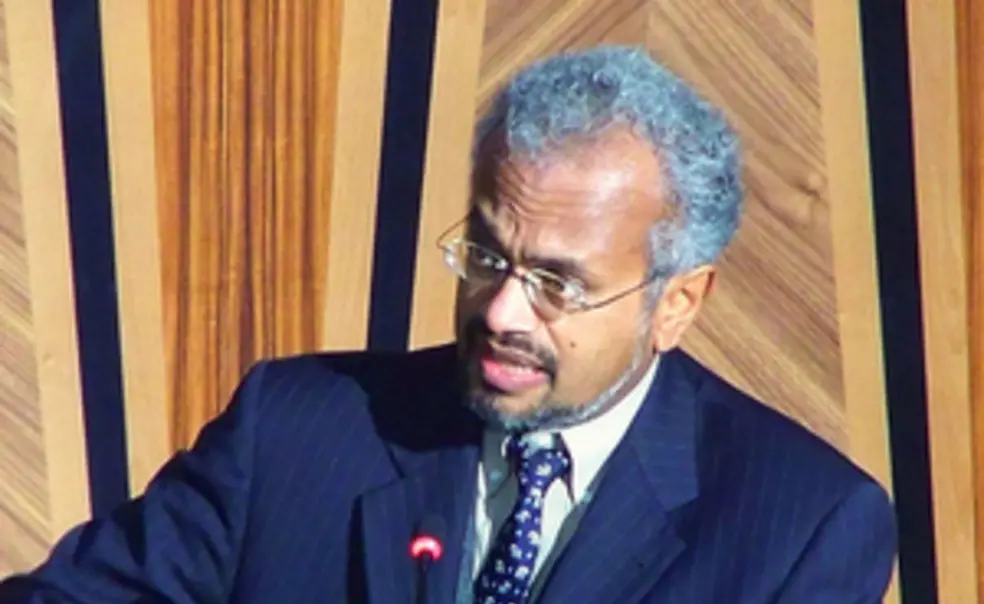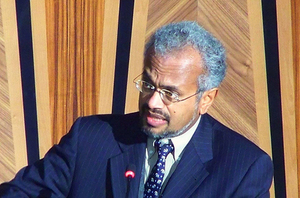Devarajan '75 encourages students to serve and engage
Shanta Devarajan '75 (Courtesy Serigne Diagne/Flickr)
Nearly 40 years after graduating from Princeton, Chief Economist of the World Bank’s Africa Region Shanta Devarajan ’75 still remembers one particular message from his freshman orientation.
“‘Do something with your Princeton education that will benefit people less fortunate than you.’… Some of the things I’ve learned over the last 10 years relate back to this message,” he told incoming freshmen at the Reflections on Service keynote address held in McCosh 50 Sept. 13. The event was aimed at inspiring new Princetonians to participate in civic-engagement activities on campus and to be proactive in taking on their own projects.
Devarajan described a week he spent in a village in Gujerat, India, working alongside women who live on about $1 a day, as well as his leadership of the World Bank’s World Development Report. While working on these projects, Devarajan began questioning why regions such as Africa and South Asia were still mired in poverty despite numerous government programs aimed at reversing the crisis.
“Programs intended to help poor people are being captured by politicians,” he said. “The problem is that poor people don’t perceive that it’s a problem of politicians – they assume it’s a problem of just life being terrible.”
As an example, he pointed to subsidized water in poor countries. Subsidized water should, in theory, be cheaper for all – but politicians dictate the districts to which the cheaper water is piped. Often, Devarajan said, subsidized water is sent only to districts where the main voter base lives.
“These very government programs … intended to help poor people are failing,” he said. “They don’t end up helping the people they were intended to help.”
Devarajan urged his audience to pursue a twofold approach to solving these issues. First, students should continue intervening directly through activities run by the Pace Center for Civic Engagement and NGOs, he said; and second, students should pursue the academic side of civic engagement – writing papers, going to conferences, having discussions with professors – and then use these analyses to “directly inform the poor” so that they might bring pressure on the politicians who help determine their livelihoods.
“Use your knowledge not just for its own sake, but as a means of empowering poor people,” he said.
After Devarajan’s talk, four University undergraduates – Ogechi Oparah ’13, Norm Bonnyman ’12, Alexis Morin ’12, and Andrew Blumenfeld ’13 – spoke about their own experiences with civic engagement on campus, describing experiences ranging from starting a national nonprofit to running for a local school board.
“The opportunities are endless,” Oparah said. “The University is just waiting for you to ask how and when. It’s all there and at your fingertips, so go for it.”













No responses yet